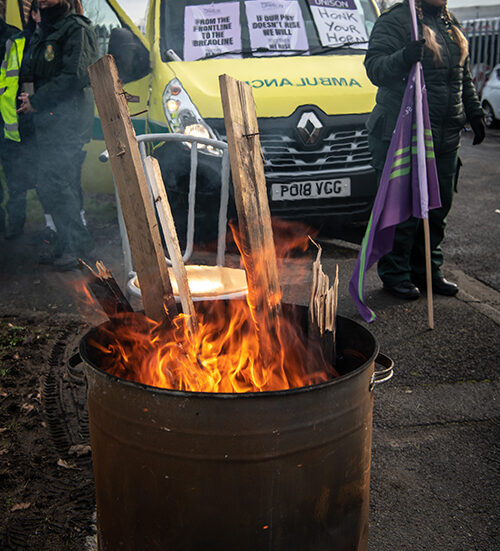The final day of UNISON’s annual health conference in Bournemouth opened with delegates standing in a minute’s silence to mark the upcoming International Workers’ Memorial Day on 28 April (above).
Moving to the business of the day, debates were heard on a variety issues.
Retirement age parity
A motion submitted by the ambulance occupational group highlighted the disparity in retirement age between police, fire service and ambulance staff.
Peter Steventon, South East central ambulance, opened the motion saying: “You would assume that NHS ambulance staff would be recognised as an ‘emergency service’. You would be wrong – we are regarded as an ‘essential service’.
“We don’t retire at 60 like emergency services, ambulance staff starting their career today won’t be able to retire until 68,” adding :“It has been proven that ambulance staff suffer the most muscular skeletal injuries in the NHS.”
One delegate told conference: “When you get a bunch of ambulance staff together you regularly have the conversation return to: best pain killer; best app for back exercises; or why does my ankle make that clicking noise?
“After the recent strike the public have a deeper understanding of the strains of being ambulance staff and now is the time to capitalise on this.”
Ben Morris continued the debate, saying: “As a 26-year-old, I have 41 more years of work left in front of me. 41 years of carrying heavy equipment, 41 more years of carrying patients, 41 more years of stress and declining mental and physical health. This cannot continue.”
Fighting privatisation in the ambulance sector
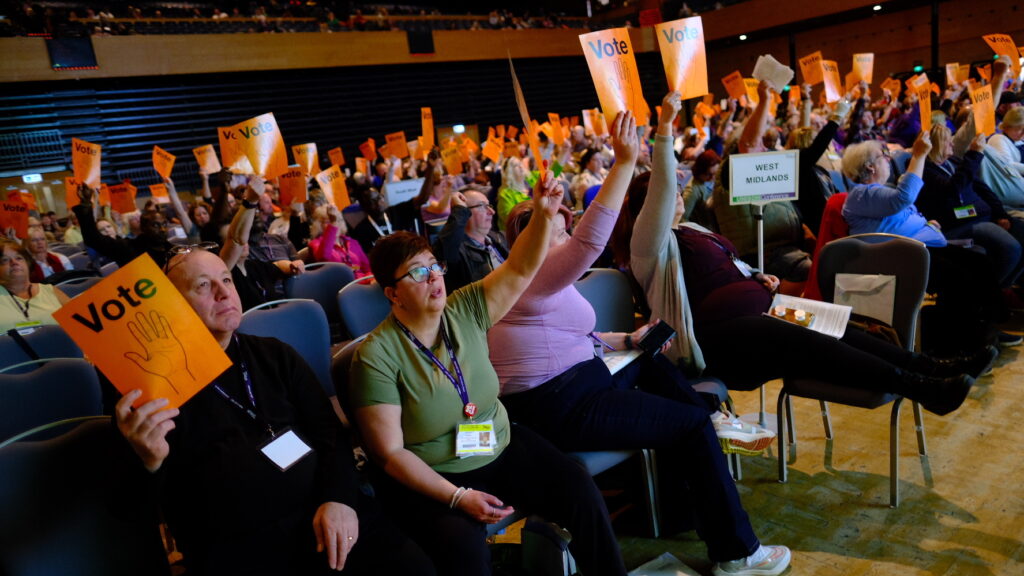
Jo Farrell, national ambulance occupational group moved the motion, saying: “Privatisation continues to be one of the biggest threats to the NHS. UNISON research indicates that ambulance trusts in England are spending £42 million a year on hiring private ambulances.
“In my trust, we have paid so much money to one company that they have grown from a small company with 10 vehicles to a huge company which now has four large ambulance stations, two HQ buildings and its own fleet workshop provision.
“Think about that. An NHS trust is using a considerable amount of its own budget, paid by taxpayers, to benefit a private provider and then that private provider is using that money to be in direct competition with the trust.
“It’s like turkeys voting for Christmas.”
Julie Reynolds spoke of her experience being a patient transport driver in the NHS before she was TUPE transferred to a private company.
She said: “I enjoyed my time in the NHS but private contractors just care about how much profit they make. They only care about KPI’s [key performance indicators].” She argued no health staff should be outsourced: “After all we are all one team.”
Halting privatisation and driving insourcing
Continuing on the theme of privatisation, a delegate from the North West region, spoke of the success the region has had in fighting for insourcing.
She said: “In the North West we have settled or taken industrial action in nearly 20 of these outsourced contracts. With workers winning AFC and higher pay and conditions.
“But like painting the Forth Bridge, it’s a never-ending job.”
Joyce Alrdidge health SGE, added: “Over the last few years UNISON, through our US2 campaign has been at the forefront of campaigning against the privatisation of services. Often undertaken by stealth by NHS trusts in a bid to cut costs.
“But the real costs have been to our colleagues in the erosion of their pay and terms and conditions. We must continue to challenge and stand up to these attempts to erode workers rights and pay. And we must remind the NHS bosses of the benefits of retaining in house services.”
The motion called on the health service group executive to campaign for a publicly owned and run NHS, co-ordinate an audit of rates of pay in all NHS contracts and provide guidance to branches to support local in-sourcing campaigns.
Making UNISON a ballot-ready health union
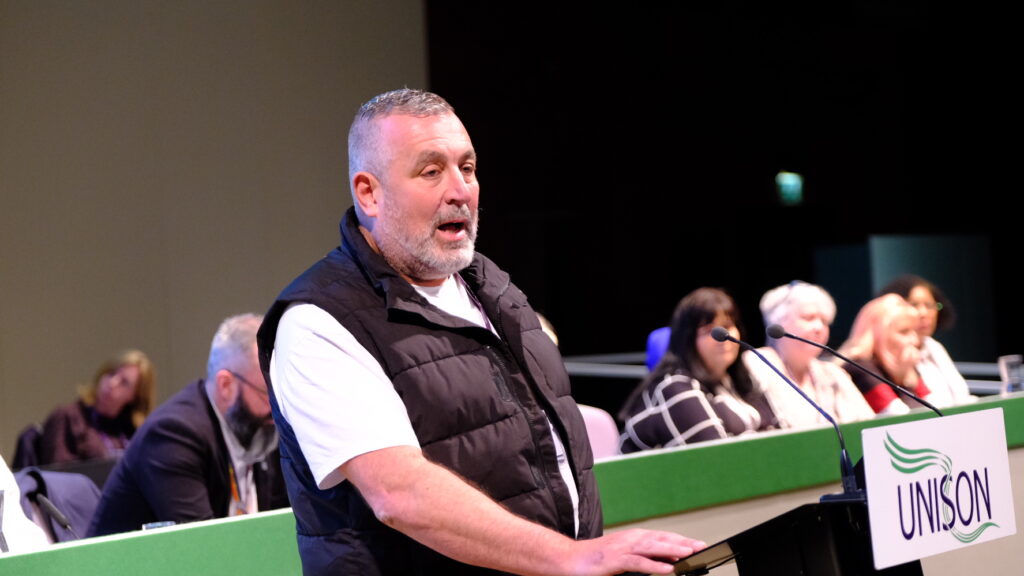
Bryn Webster (pictured above) opened debate on the motion, speaking of his experiences both nationally, as chair of UNISON’s national ambulance committee, and locally, as branch secretary of Yorkshire Ambulance service who achieved a strike mandate in the recent NHS pay dispute.
He told conference: “We should be proud of being the largest union in the NHS but with that comes great responsibility. We ended up with the largest turnout ever seen in UNISON with over 93,000 votes cast.”
“I was very proud that Yorkshire ambulance got over the line, but we weren’t as organised as we thought we were.”
Another speaker, Peter Steventon, branch secretary at South East central ambulance, told conference that at his branch: “We were 9 votes short of 50% turnout – it was heart-breaking for those involved.
“We can deliver industrial mandates, we can get over 50% – but there is no magic bullet.” Before highlighting how “It’s the boring stuff that gets you mandates,” – such as data cleansing, updating records and GDPR.
“Conference we can beat these Tory laws – but it takes a lot of organising.”
The article Health conference asks why ambulance staff aren’t an emergency service first appeared on the UNISON National site.


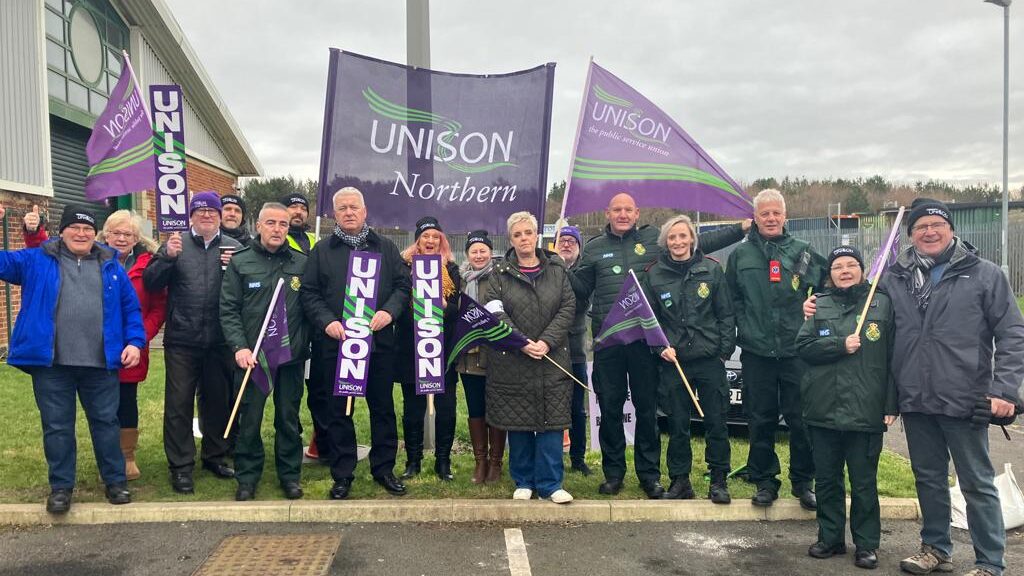
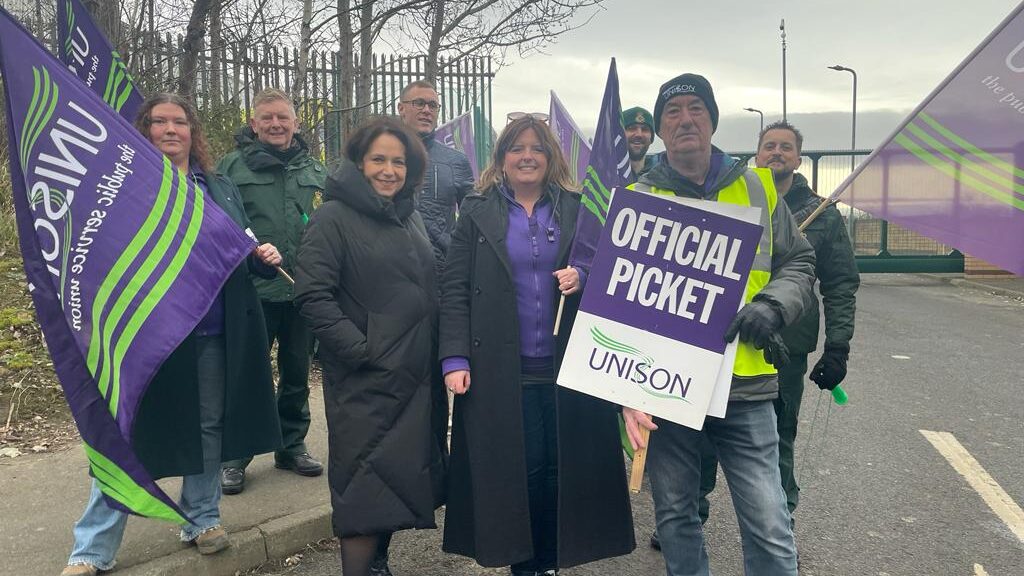
 . Stay tuned for updates.
. Stay tuned for updates.